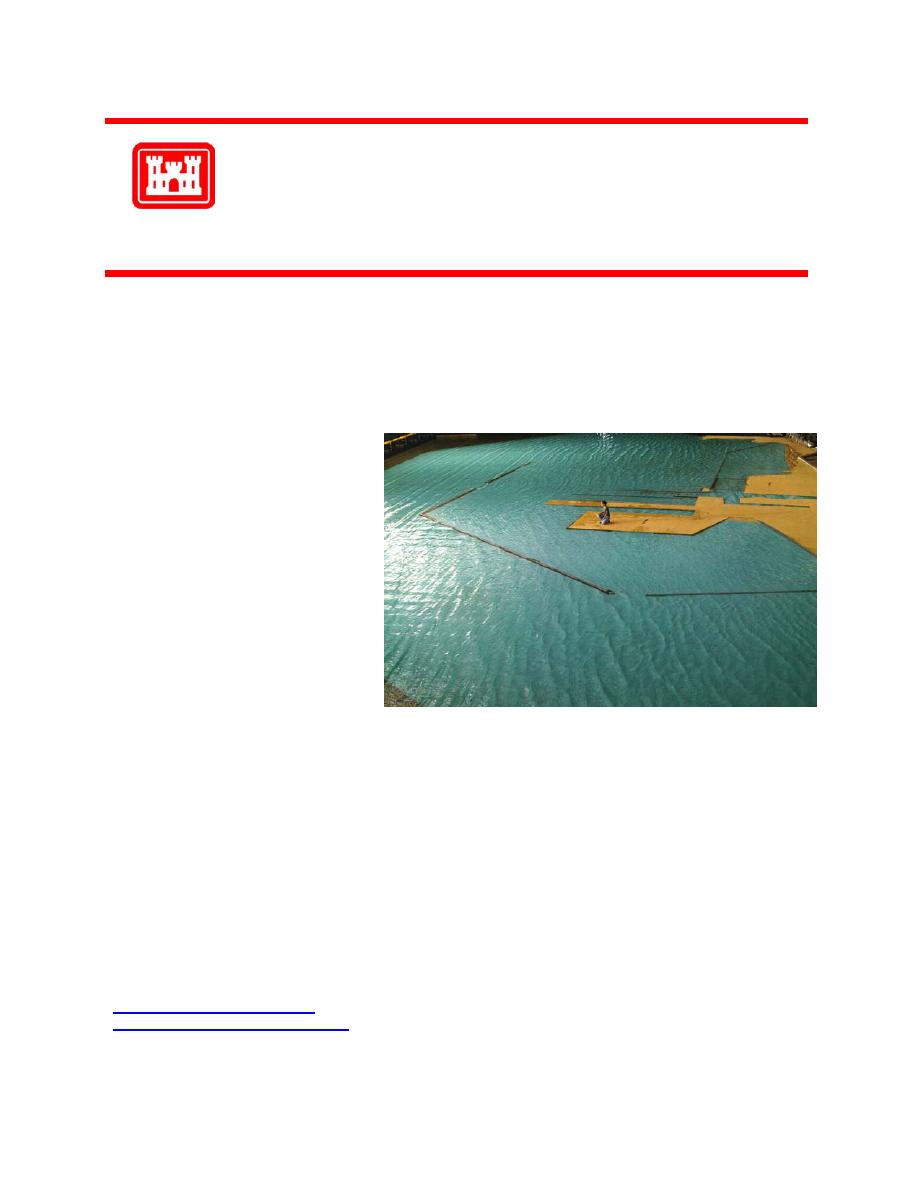
Fact Sheet
US Army Corps of Engineers
U.S. Army Engineer Research and Development Center
January 2003
Public Affairs Office
3909 Halls Ferry Road
Vicksburg, MS 39180-6199
(601) 634-2504
http://www.wes.army.mil
Design for Wave Protection at Chicago Harbor, Illinois
Purpose: To study wave conditions for the existing harbor and the impacts of various breakwater breaches on wave
conditions in the harbor, and to determine optimum improvements that will provide acceptable wave conditions
within the harbor during periods of storm wave activity.
Background: Chicago Harbor is located
on the southwestern shoreline of Lake
Michigan at the mouth of the Chicago
River. Construction was initiated in
1833 with dredging of a channel and the
construction of piers extending into the
lake on the north and south sides of the
river. The modern-day inner breakwa-
ters were built south of the Chicago
River mouth between 1874 and 1880 and
the outer breakwaters were constructed
between 1889 and 1923. Improvements,
repairs, and general maintenance of the
structures have continued until present
day. The Chicago Harbor Breakwater
system is a combination of several types
of structures combined to provide protec-
tion to the Chicago Harbor infrastructure. The outer breakwaters have deteriorated over the years. Significant over-
topping of the structures occurs during storms resulting in unacceptable wave heights in the harbor. Marinas pro-
tected by the inner breakwaters also experience damage to their facilities and small craft due to excessive wave action
during storms.
Facts: At the request of the U.S. Army Engineer District, Chicago, a 1:120-scale physical hydraulic model was
designed and constructed at the U.S. Army Engineer Research and Development Center by the Coastal and Hydrau-
lics Laboratory to study wave conditions for existing conditions and proposed harbor modifications. The model
reproduces approximately 18,000 ft of the Illinois shoreline, the entire Chicago Harbor complex, and offshore
bathymetry in Lake Michigan to depths of 30 ft or greater. A 160-ft-long unidirectional, spectral wave generator, an
automated data acquisition and control system, and capacitance-type wave gauges are being used in model opera-
tion. Modifications are being made to the breakwaters that will alleviate undesirable wave conditions in the harbor
and provide acceptable conditions. The impacts of various hypothetical breakwater breaches on wave conditions in
the harbor are also being studied.
Points of Contact: For additional information, please contact Mr. Robert Bottin at 601-634-3827
( ), or Mr. Dennis Markle at 601-634-3460
( )"> ).




 Previous Page
Previous Page
